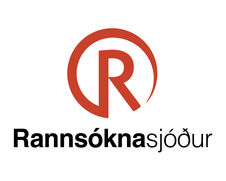Mæling á vinnuálagi í flugumferðarstjórn með talgreiningu - verkefni lokið
Fréttatilkynning verkefnisstjórans.
The main results of this project is a large database that allows researchers to characterize cognitive workload in terms of voice and cardiovascular reactivity taking into account the personality trait and cognitive capacity of each individual.
Air traffic
control (ATC) is a highly demanding task that imposes a high cognitive workload
on the operator for extensive periods of time. High workload increases the risk
of impaired performance and errors which ultimately threaten safety in air
traffic. Monitoring cognitive workload is therefore critical if maximum
efficiency of ATC operators is to be obtained, ensuring both their well-being
and safe air travel. To date, no suitable way to monitor workload in ATC has
been found.
The main goal of the present work was to go beyond the state of the art by systematically testing the feasibility of voice analysis for cognitive workload monitoring in ATC. Although not thoroughly tested in relation to workload classification, speech algorithms have reliably classified various emotional states and are a promising new development for enhancing work conditions in complex, cognitively demanding environment. In this project the voice signal was analyzed for cognitive tasks of varying difficulty and compared against cardiovascular measures as well as subjective ratings and individual characteristic trait variables.
The main results of this project is a large database that allows researchers to characterize cognitive workload in terms of voice and cardiovascular reactivity taking into account the personality trait and cognitive capacity of each individual. Initial findings are promising. Changes in cognitive workload can be predicted both with the voice signal and with cardiovascular reactivity with aprox 70-75% accuracy. Furthermore, the results show clearly a different profile of cardiovascular reactivity to workload levels for individuals with high compared to low cognitive capacity. More accurate classification of workload may therefore depend on taking individual differences into account.
The originality of the project lies both in the signal being used and the methods used to extract features from the voice signal. Furthermore, the project is unique in that it uses combined signals based on multiple voice characteristics and cardiovascular measures as well as gathering data on personality trait variables. The ultimate goal here is to look for signals that allow us to reliably distinguish between variable cognitive states in a very complex and dynamic task-environment.
Information on how the results will be applied.
The outcome of this project will be used to develop a prototype to further test cognitive monitoring in ATC environments. The data gathered here provides a valuable insight into the relationship between cognitive workload and voice features, in particular as it can analyze the features based on the individual‘s cognitive capacity and other personality traits.
A list of the project's outputs.
Talks:
- Monitoring
cognitive workload of air traffic controler based on speech analysis, Reykjavik
University Lecture Marathon, Reykjavík, Mars, 2015.
- Voice
Source Analysis for Cognitive Workload Monitoring, Invited talk at University
of New South Wales, Sydney, May 2015
- Detection
of Cardiovascular Reactivity in Speech, Invited talk at Decode Genetics,
Reykjavik, 2015
Publication:
- Johannsdottir,
K.R., Magnusdottir, E., & Gudnason, J. (To be submitted to Biopsychology,
Jan 2017). The impact of cognitive capacity differences on cardiovascular
reactivity to workload.
- Magnusdottir,
E.H, Bean, C., Johannsdottir, K.R., & Gudnason, J. (To be submitted to
Biomedical Signal Processing, 2017). The classification of cognitive workload
using cardiovascular reactivity.
- Magnusdottir,
E.H., Borsky, M., Meier, M., Johannsdottir, K.R., & Gudnason, J. (submitted
and accepted). Vocal tract and voice source features for monitoring cognitive
workload. Periodica Polytechnica Electrical Engineering and Computer Science,
Special issue on socio-cognitive ICT.
- Meier, M,
Borsky, M, Magnusdottir, E. H., Johannsdottir, K. R. & Gudnason, J. (2016).
Vocal tract and voice source features for monitoring cognitive workload. To
appear in the Proceedings of the 7th IEEE International Conference on Cognitive
InfoCommunication. Wroclaw, Polland, October, 2016.
- Werff, L.
V. D., Guðnason, J., & Jóhannsdóttir, K. R. (2015). Detection of
Cardiovascular Reactivity in Speech. In Sixteenth Annual Conference of the
International Speech Communication Association.
Heiti verkefnis: Mæling á vinnuálagi í
flugumferðarstjórn með talgreiningu
Enskt heiti: Monitoring cognitive workload in ATC using speech analysis
Verkefnisstjóri: Kamilla Rún Jóhannsdóttir, Háskólanum í Reykjavík
Tegund styrks: Verkefnisstyrkur
Styrktímabil: 2013-2015
Fjárhæð veitts styrks: 13,89 millj. kr. alls
Tilvísunarnúmer Rannís: 13074905


